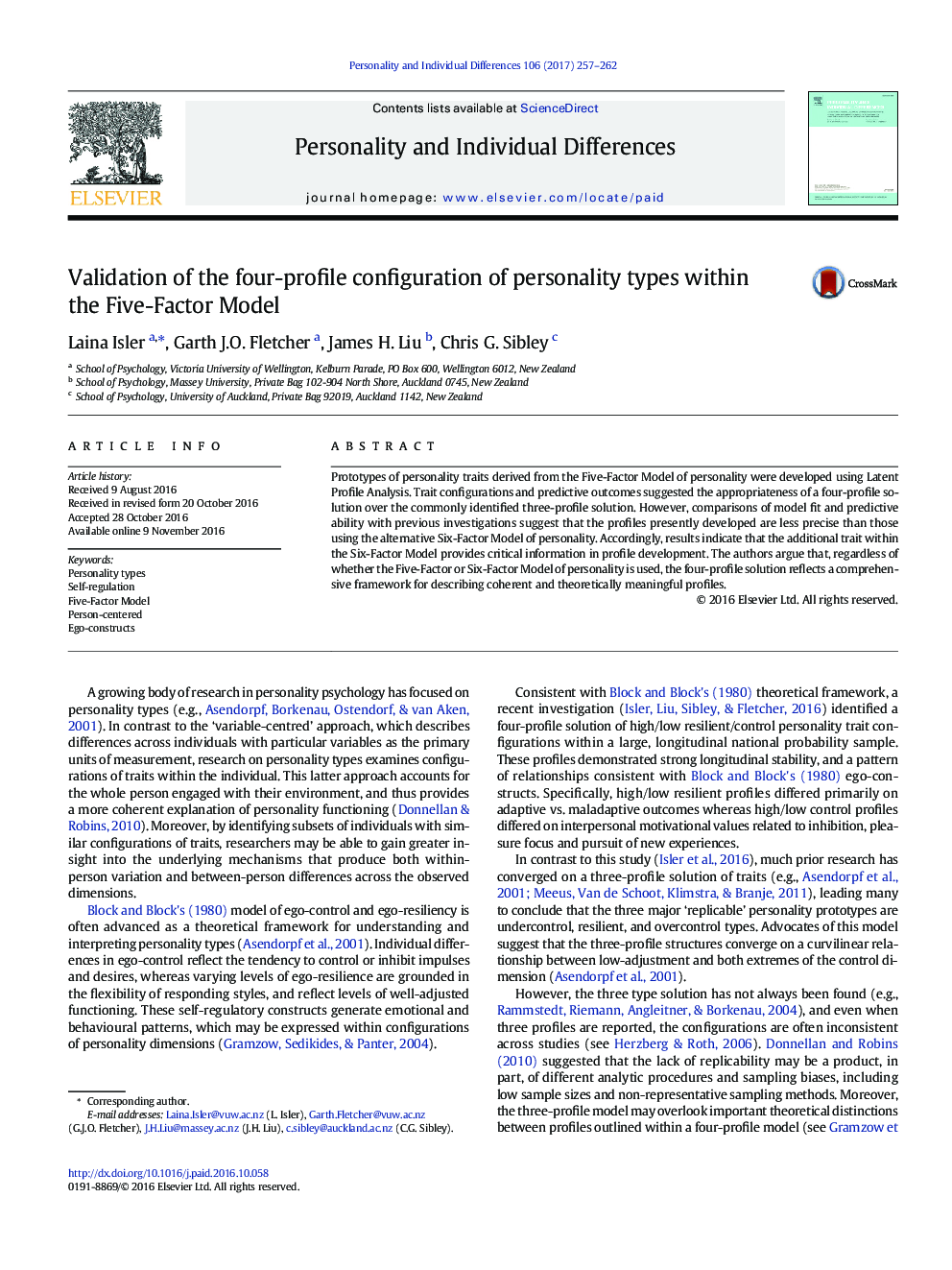| Article ID | Journal | Published Year | Pages | File Type |
|---|---|---|---|---|
| 5036212 | Personality and Individual Differences | 2017 | 6 Pages |
â¢A four-profile solution of personality is superior to a three-profile solution.â¢Outcomes of trait profiles are consistent with self-regulatory ego-constructs.â¢Personality types developed using the FFM are less precise than those using the SFM.
Prototypes of personality traits derived from the Five-Factor Model of personality were developed using Latent Profile Analysis. Trait configurations and predictive outcomes suggested the appropriateness of a four-profile solution over the commonly identified three-profile solution. However, comparisons of model fit and predictive ability with previous investigations suggest that the profiles presently developed are less precise than those using the alternative Six-Factor Model of personality. Accordingly, results indicate that the additional trait within the Six-Factor Model provides critical information in profile development. The authors argue that, regardless of whether the Five-Factor or Six-Factor Model of personality is used, the four-profile solution reflects a comprehensive framework for describing coherent and theoretically meaningful profiles.
